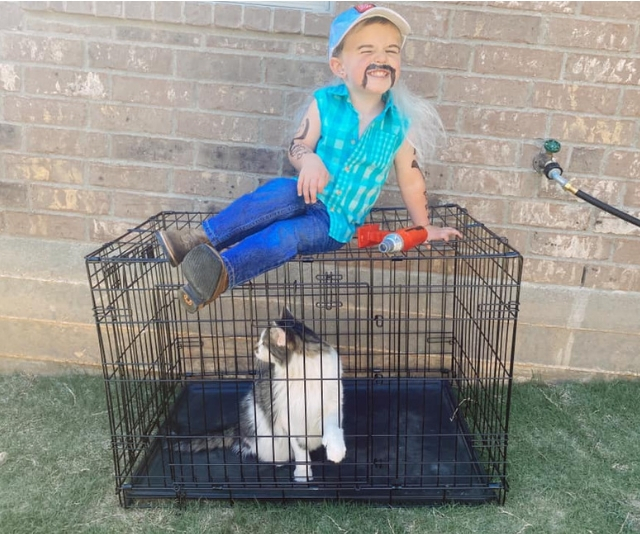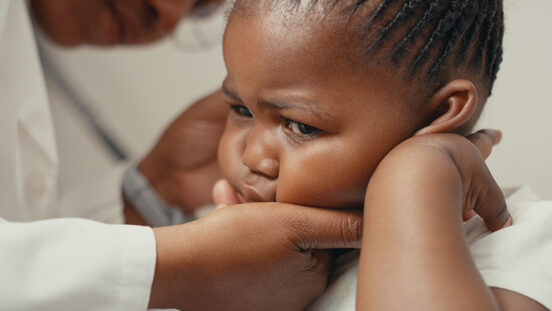Parenting a child with autism can be joyful and challenging
Here's why awareness, understanding and early diagnosis is so important.
By Suvi Mahonen
World Autism Awareness Day is on April 2, 2020 and is an internationally recognised day to raise awareness about people with Autism Spectrum Disorder (ASD).
When Jack Rogerson turned two, his parents were excited to throw him a birthday party. They invited their family and friends around and transformed their brick-paved courtyard into a toddler-centred playhouse.
Only Jack wasn’t interested. He mostly retreated to the side lines, preferring solitary activities such as pulling leaves off a hedge or lining his toy cars up in a row.
“Our friends and family were concerned, but we were in complete denial,” said Jack’s mother, Nicole Rogerson.
By the time Jack turned three, however, his parents accepted that there was a problem with their son.
“We had difficulty getting his attention, and he would throw incredible tantrums if something unexpected occurred,” said Rogerson.

Nicole with her two boys. Jack is on the left.
Nicole and her broadcaster husband Ian Rogerson of “Jono and Dano” fame, took Jack to a series of paediatricians who diagnosed him as having autism.
Autism spectrum disorder (ASD) is a neurodevelopmental disorder that is characterised by persistent deficits of social interaction and restricted, repetitive behaviour. It affects approximately one in 70 people in Australia .
Those on the mild end of the spectrum are able to live independently and maintain regular employment. However, up to 70 per cent will have some degree of intellectual deficit.
The cause of autism is unknown but likely multifactorial. Both genetics and the environment are thought to play a role. Boys are four times as likely to be diagnosed as girls.
Obtaining a diagnosis
Diagnosis is obtained by studying an individual’s developmental history, observing their communication skills and social interactions, and psychometric testing. In Australia, only licensed paediatricians, psychiatrists and neurologists are authorised to make an official diagnosis of ASD, which is required in order to get access to National Disability Insurance Scheme (NDIS) funding.
Professor Adam Guastella is a clinical psychologist at the Brain and Mind Centre, University of Sydney. “If people don’t have the ability to pay for private specialists, it’s not uncommon for them to wait for up to a year, or even two years, for a public service assessment of their child,” he says.
Brisbane-based child and adolescent psychiatrist John Down says helping a child with ASD is very much a team effort involving psychologists, speech pathologists, occupational therapists, physiotherapists and social workers.
“There has been a positive move in recent years to focus less on diagnosis and more on the level of functional impairment the child may have.”
Early intervention key
Occupational therapist Hayley Forbes says early intervention can provide families with the skills they need to best support their child.
“Families that have begun therapy when their child was young, often have better outcomes,” she says.
Nicole, who is now CEO of Autism Awareness Australia, is a passionate advocate for early intervention.
“By getting that important early intervention, and getting that support through school, you’re giving your child their best chance.”
Signs to watch for
Professor Guastella says parents should be on the look out to see if their child is responding to interaction with others. “It’s about developmental milestones.”
Other signs to look out for include delayed verbal communication, limited use of gestures, obsessive tendencies, being overly sensitive to certain auditory and visual stimuli, and repetitive behaviours like spinning or rocking.
A better future
State education departments now offer a range of resources to help support children with ASD. The workforce has also been evolving with employees becoming more aware of workers with ASD and providing employment opportunities that take advantage of their strengths.
Those with ASD will often excel in jobs that require repetitive tasks in relative isolation such as information technology, laboratory work, cleaning, landscape gardening and accounting.
Adelaide-based psychiatrist Harry Hustig says that people on the spectrum are often very employable. “They have less days off than the general population. They actually like the routine. It’s a case of finding them the right job that suits their talents.”
This is certainly true for Jack, who is now 24.
In 2014 he graduated from Year 12 at St Ignatius College in Sydney and went on to complete his chef apprenticeship.
Nicole wants parents to have courage. “Don’t be so scared of autism,” she says. “It’s going to be a different life to the one you were expecting, but there’s going to be an enormous amount of benefits that come with it as well.”
As for Jack, he has pertinent advice for others with ASD. “Just be yourself, make your own choices and do what you want to do,” he said. “No one can judge your life.”
Suvi Mahonen is a journalist based on the Gold Coast. Follow her on Facebook , YouTube and her medical blog.




